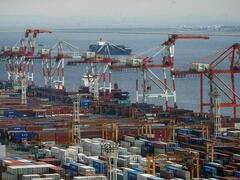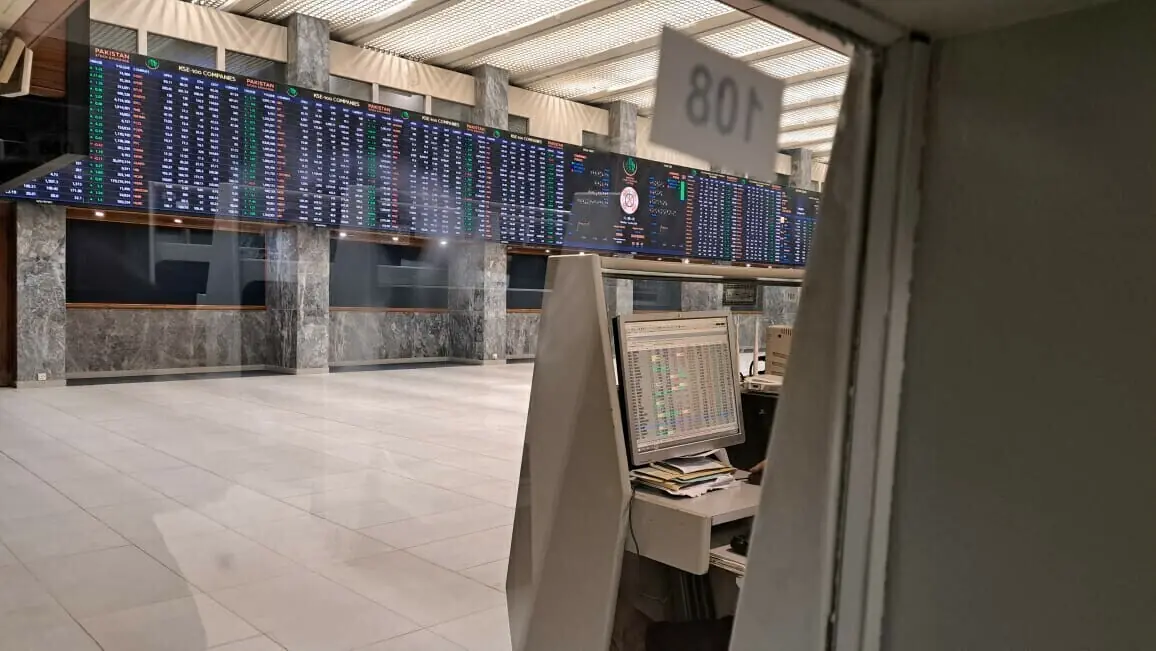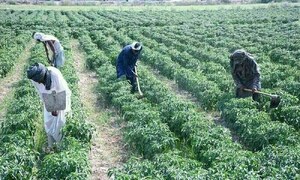Thai rice exporters say it is only a matter of time before the government is forced to sell grain from its bulging stocks, which could force down prices, although they were supported this week by strength in the baht. The government, which has been buying rice since late 2011 at prices above the market rate in order to support farmers, has declined to say how much rice it holds, but traders and industry officials put its stocks at 17 million tonnes, a record high.
That is almost double what Thailand used to export in a normal year before the government started buying up the crop, and the authorities are struggling to rent additional warehouses for storage. "Sooner or later the government will offload some of its stocks. It's running out of storage space and it needs to sell to get liquidity to run the scheme," said Vichai Sriprasert, an honorary president of the Thai Rice Exporters Association. A decision to release stocks could result in exports being far higher than the 6.5 million tonnes forecast by the trade body, association officials told reporters at an annual briefing on the export outlook.
"There is a very high possibility that exports could reach 8 million tonnes if the government exports a few million tonnes of rice from stocks via government deals," said Korbsook Iamsuri, president of the association. In 2012 Thailand exported 6.9 million tonnes of rice, down more than a third from 10.6 million the previous year because the intervention scheme made the Thai grain too expensive for many buyers, especially with plenty of the staple available from producers such as India and Vietnam. The United States Department of Agriculture has also forecast Thai 2013 exports of 8 million tonnes.
That might be enough for Thailand to snatch back the title of the world's biggest rice exporter this year after the position was taken by India in 2012. India is forecast by the USDA to export 7.5 million tonnes of rice in 2013, down from 10.25 tonnes in 2012, while Vietnam is forecast to ship 7.4 million tonnes, down slightly from last year's 7.7 million.
However, competition will remain tough as both countries have been cutting prices to attract buyers and, adding to exporters' concerns, a strong Thai baht is pushing up dollar-based export prices. The baht was around 29.76 per dollar on Wednesday, hovering near a 17-month high. It has risen 2.8 percent so far this year, making it Asia's strongest currency, fuelled by inflows into the stock and bond markets. As a result, the price of 5 percent broken grade Thai white rice was at $570 per tonne, up from last week's $565.
That was far above the same grade offered by Vietnam and India at $405 and $420 per tonne respectively, traders said. In Vietnam, rice prices recovered from last week's range of $390 to $400 a tonne after the government approved a stockpiling scheme to shore up prices, as it does most years.
BR100
15,059
Decreased By
-56.5 (-0.37%)
BR30
42,931
Decreased By
-117.2 (-0.27%)
KSE100
148,815
Decreased By
-677.8 (-0.45%)
KSE30
45,206
Decreased By
-312 (-0.69%)





















Comments
Comments are closed.